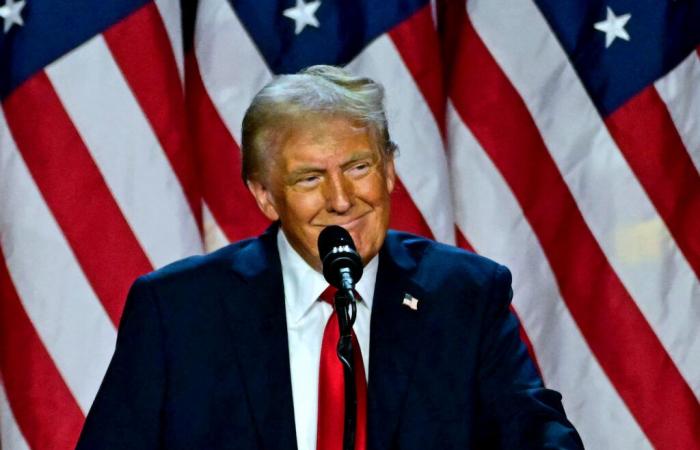During his first term in the White House, Donald Trump sparked indignation in Africa by speaking of “shithole countries”. This week, African countries quickly congratulated him on his second election, calling for cooperation with mutual respect. But questions remain about the impact of Donald Trump's isolationist agenda on Africaespecially if his Republican Party controls the House of Representatives and the U.S. Senate. Overview of key topics.
The African Growth and Opportunity Act (AGOA) trade agreement is a centerpiece of the U.S.-Africa trade relationship. This preferential trade treatment launched in 2000 allows African countries to export many products to the United States without customs duties, if they respect a series of conditions (political pluralism, respect for human rights, fight against corruption, etc.). .).
America First
AGOA covers a wide range of products from clothing to yams to cars. South Africa is AGOA's largest non-oil exporter to the United States. Donald Trump has already promised to impose significant tariffs on importsbut its position on the future of AGOA, which is due to be renewed next year, is unclear.
“Under a Trump administration, with his mantra 'America First', trade policy would likely be insular and transactional. Given Trump's skepticism towards multilateral frameworks, the continuation of AGOA could be legitimately threatened,” said Ronak Gopaldas, consultant at the Institute for Security Studies (ISS).
While “Africa may not be high on Trump's agenda,” his first administration pushed for trade deals with select African countries, suggesting a preference for bilateral engagement. he notes.
Another question is how the competition between Trumpist America and China will play out in Africa. The United States is supporting major infrastructure projects there, starting with the ambitious “Lobito Corridor”, a rail project that aims to connect Zambia and the Democratic Republic of Congo (DRC) to the port of Lobito in Angola, for the export of copper and cobalt in particular.
This project aims to compete with China, which is increasing infrastructure on the continent to guarantee its supply of natural resources.
Security and jihadism
American forces have long played a role in training and combating
jihadismon a continent where Al-Qaeda and Islamic State fighters and their allies operate.
During his first term (2017-2021), Donald Trump ordered the withdrawal of American troops from Somalia, where they were participating in the fight against the Shebab Islamist rebels. The United States, however, remains an important supporter of the Mogadishu government.
Under the presidency of Joe Biden, American forces were forced to leave Niger by that country's military government. France also withdrew its troops from the Sahel under pressure from putschist regimes which turned towards Russia.
In September, General Michael Langley, head of the US military's Africa Command (Africom), reported discussions with other African partners to “reset and recalibrate” US military aid to the continent.
But with the incursions into Africa of the Russian mercenary group Africa Corps, seen as Wagner's successor, and the strengthening of Islamist armed groups in the Sahel, what role will American forces play under Trump? The latter has already criticized the billions of dollars spent by the United States on Ukraine.
What help?
The United States is a major provider of aid to Africa, with $4 billion (3.7 billion euros) planned in 2024, according to the State Department. During his first term, Donald Trump proposed cut foreign aid by billions of dollarsbut encountered resistance from the American Congress.
Some South African media are already wondering whether the US HIV aid program, called Pepfar, will continue.
Concerning the climate. Africa is the continent most affected by climate changeeven though he is the one who contributes the least. With Donald Trump calling climate change a hoax, his administration could put the brakes on attempts to move more toward sustainable energy solutions.
During his first term, Trump withdrew from the Paris agreement aimed at curbing global warming. This time, he pledged to reverse the ecological measures taken by his predecessor.
“The world has experienced (the first) Trump presidency and the American withdrawal from the Paris agreement. His return (…) is a moment of deep apprehension in global climate diplomacy,” explains Mohamed Adow, Kenyan activist and director from the NGO Power Shift Africa, in a press release.
Read more






